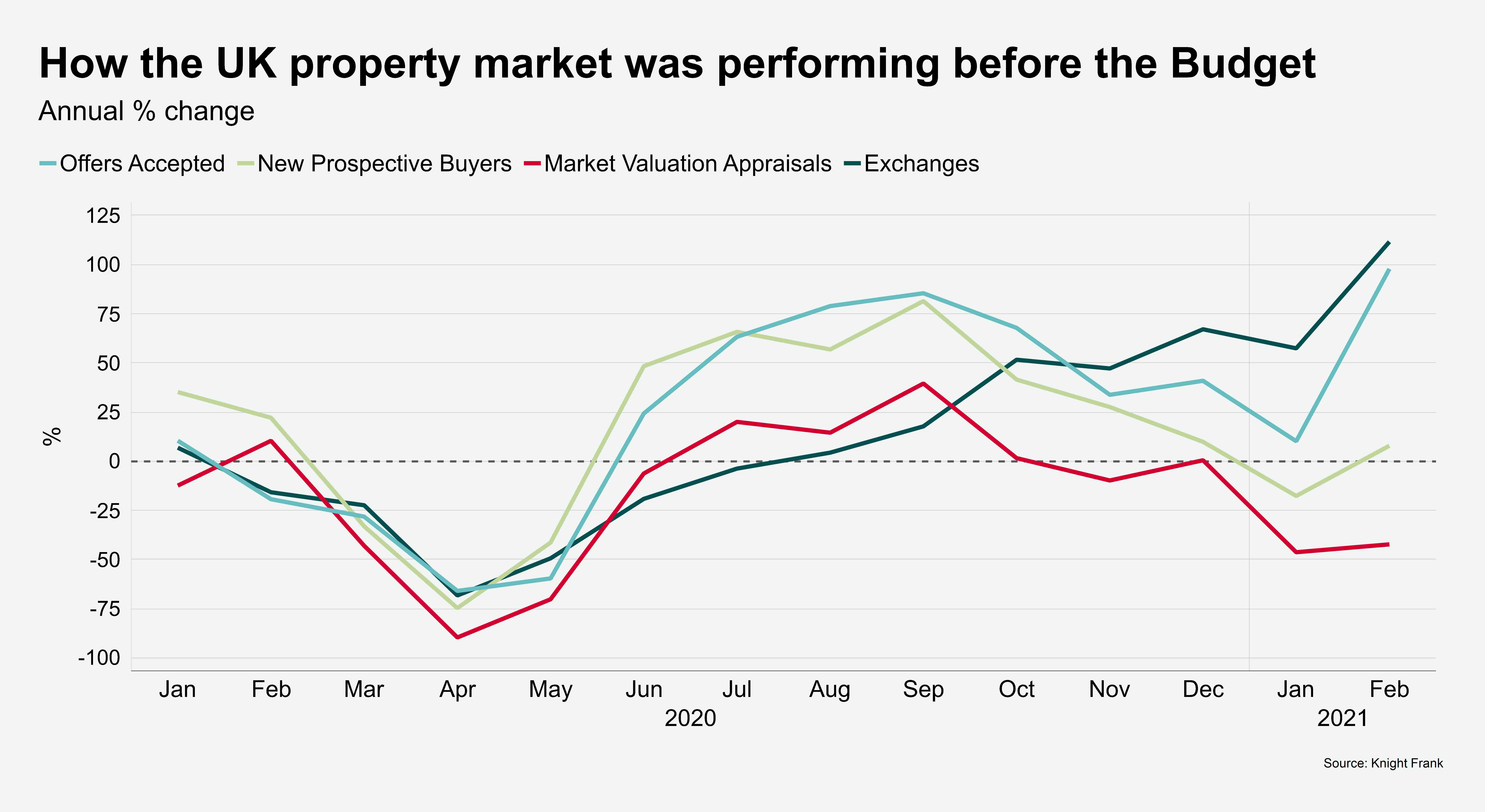Property Market Outlook: Week Beginning 8 March
How was the UK property market performing before the Budget and will the stamp duty holiday extension change anything?
3 minutes to read
One immediate impact of the stamp duty holiday extension announced in last week’s Budget is that UK house price forecasts will need to be revised.
Indeed, it’s hard to think of a time when a succession of government interventions has had such a profound impact on the outlook for house prices in such a short space of time.
The extension will boost demand and prices at a time when the UK is moving closer to lifting lockdown measures thanks to a successful vaccine roll-out programme.
Our current forecast is for flat prices in 2021 across the UK, but the stamp duty holiday, as well as the extension of furlough scheme, means this will be revisited.
Even before the extension was announced, the property market was showing signs of strength, as the below chart shows.
This performance would have been boosted to some extent by the approaching March stamp duty deadline, but the momentum appears unlikely to dissipate.

The number of exchanges in February more than doubled (+109%) compared to the same month last year as the high number of offers accepted in recent months came to fruition.
February was another strong month for offers accepted (+99% compared to February 2020), having experienced robust year-on-year growth since the market re-opened last May. This spike was partly attributable to the stamp duty deadline but exchange numbers are likely to remain strong in coming months as new supply and demand continue to rise.
The number of new prospective buyers in February was 8% higher than the same month last year. Most of those registering in February would not have realistically expected to complete before the end of March. The figure in January was 18% below the same month last year, which was a record month following the general election result in December 2019.
Meanwhile, on the supply side, the number of market valuation appraisals is starting to pick up.
During the first two months of the year, the figure was more than 40% lower than 2020, as we have previously analysed. Home schooling and question marks over new Covid variants caused sellers to hesitate.
However, there are signs this is changing as schools re-open from today and as Covid cases continue to fall. In the last week of February, the number of market appraisals was 57% higher than the first week of the year. The equivalent rise was 3% in the previous two years.
The initial stamp duty holiday deadline of 30 June will be more meaningful in some parts of the country than others.
The tax-free threshold of £250,000 that runs until 30 September means that in some lower-value property markets, the holiday has effectively been extended by six months.
Greater urgency will be felt in markets with higher average prices. The stamp duty on a £500,000 transaction will go from zero to £12,500 at the end of June before reverting back to its pre-holiday level of £15,000 in October.
More important for the property market will be a sense of finality, as we have discussed previously. Speculation that the holiday will be extended twice should fade as the vaccine programme progresses and the nascent economic recovery gathers pace.